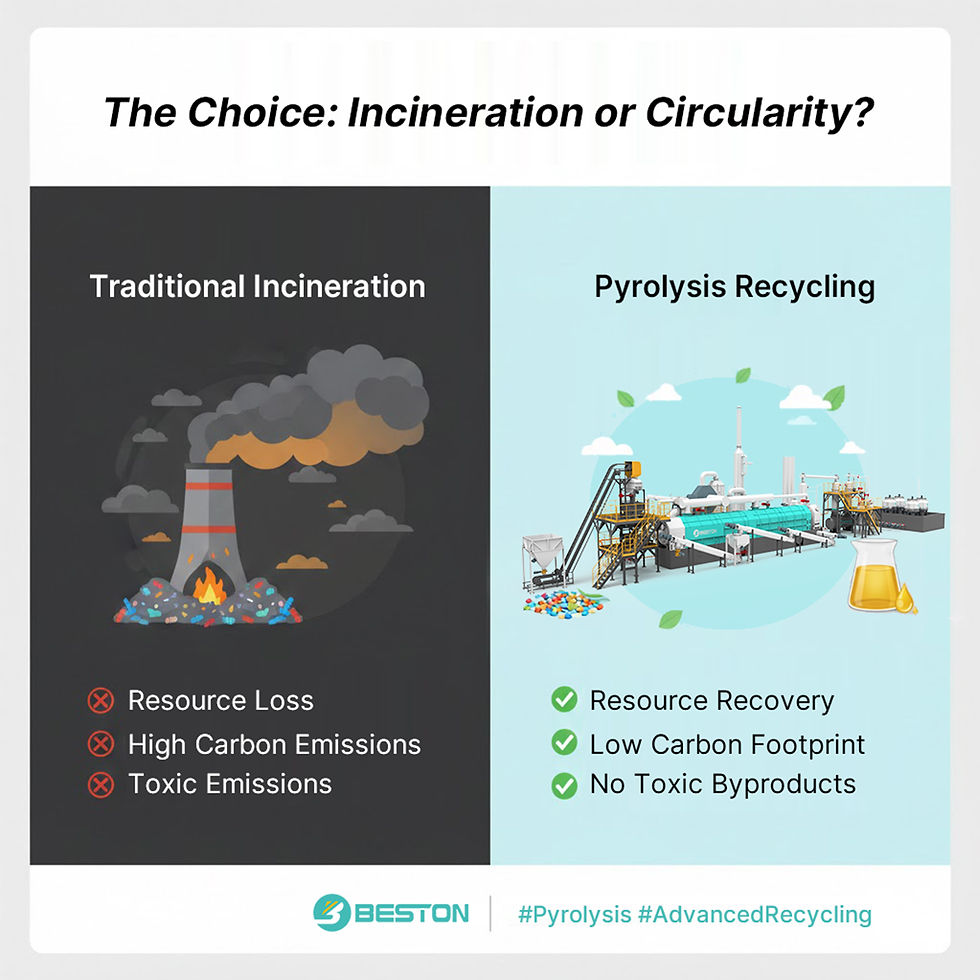Art and Science of Biochar Production Methods
- lee784287
- 2024年1月4日
- 讀畢需時 2 分鐘
Genesis: Understanding Biochar Production
Biochar, often referred to as "black gold" in agricultural circles, is a carbon-rich material derived from the pyrolysis of organic biomass. This transformative process not only mitigates waste but also results in a valuable soil amendment. Now, let's unravel the diverse tapestry of methods of biochar production.
1. Pyrolysis: The Elemental Transformation
At the heart of biochar production lies the method of pyrolysis, a thermal decomposition process. Biomass, such as wood chips, crop residues, or organic waste, undergoes high-temperature treatment in an oxygen-limited environment within specialized biochar production equipment. This method ensures the organic material transforms into biochar, leaving behind bio-oil and syngas as valuable byproducts.
2. Gasification: Harnessing the Power Within
In the realm of advanced technologies for biochar production, gasification takes center stage. This process involves the partial combustion of biomass to produce a synthesis gas, rich in carbon monoxide and hydrogen. The resulting biochar exhibits enhanced stability, making it a coveted soil enhancer. The choice of gasification technology profoundly influences the quality of the biochar produced.
3. Hydrothermal Carbonization (HTC): Nature's Alchemy
For those seeking a more environmentally benign approach, hydrothermal carbonization stands out. This method mimics the natural process of coal formation, subjecting biomass to high temperature and pressure in the presence of water. The result is a hydrochar with unique physicochemical properties, suitable for soil improvement.

Biochar Production Equipment: A Symphony of Technology
a. The Carbonization Kiln
Within the arsenal of biochar production equipment for sale, the carbonization kiln stands as the workhorse. This cylindrical apparatus provides the controlled environment needed for pyrolysis to work its magic. With advanced temperature regulation and airtight designs, modern kilns ensure optimal biochar yield.
b. Gasifiers for Advanced Biochar
In the evolution of technology for biochar equipment for sale, gasifiers claim a pivotal role. These devices facilitate the gasification process, converting biomass into a valuable syngas. The integration of cutting-edge gasification technology ensures not only efficient biochar production but also harnessing the energy potential of the syngas.
c. Hydrothermal Reactors
For those inclined towards hydrothermal carbonization, specialized biochar production equipment in the form of hydrothermal reactors takes center stage. These reactors subject biomass to high-temperature water under pressure, fostering the transformation into hydrochar. The resulting product holds promise as a soil conditioner with unique nutrient retention capabilities.
Selecting the Optimal Technology for Biochar Production
In the quest for sustainable practices, the burning question arises: "Which technology is used for biochar production?" The answer lies in understanding the specific needs and objectives of the process.
- Tailoring Solutions with Pyrolysis
Pyrolysis, with its simplicity and versatility, remains a stalwart choice for many. The controlled environment and varied temperature regimes make it adaptable to a range of biomass inputs. This method ensures a consistent and reliable biochar output.
- Advancing Practices with Gasification
For those seeking a more advanced and energy-efficient route, gasification emerges as the technology of choice. The synergy between efficient syngas production and biochar yield positions gasification as a frontrunner in the biochar production landscape.
- Embracing Environmental Harmony through HTC
Hydrothermal carbonization (HTC), although relatively nascent, gains traction for its environmentally friendly approach. The absence of harsh conditions and the ability to process a diverse range of feedstocks make it an appealing choice for those prioritizing sustainability.



留言